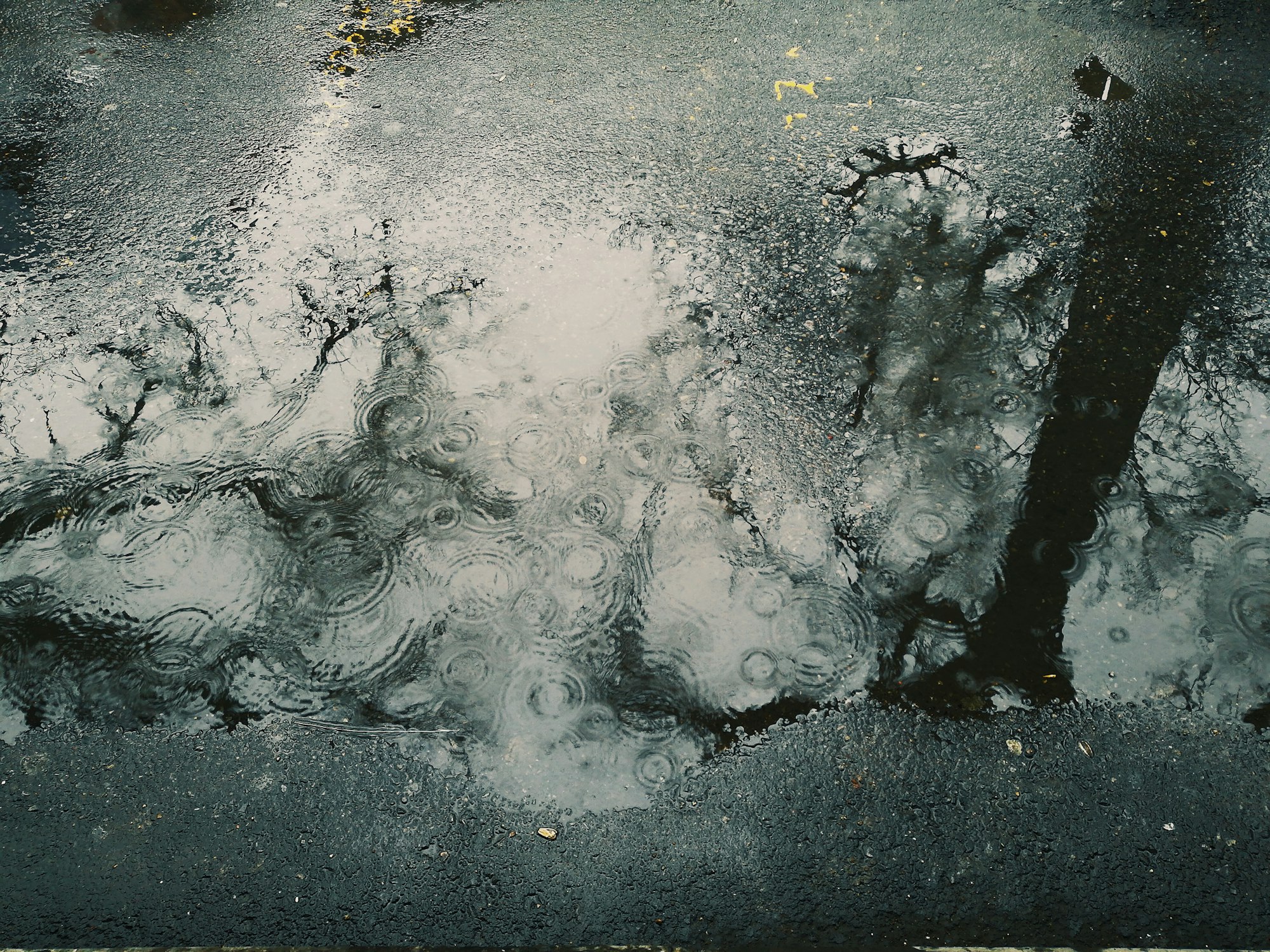Wisława Szymborska, "Puddles"
Szymborska's riddling moral in "Puddles" fascinates both as a matter of craft and as a puzzle about our paranoia

Szymborska's riddling moral in "Puddles" fascinates both as a matter of craft and as a puzzle about our paranoia. She confesses a childhood fear of puddles after a rainstorm. You could splash around in them, but what if "[o]ne of them might be bottomless... / even though it looks just like the rest"? You could be swallowed whole, with no way to return to the surface!
Puddles Wisława Szymborska (tr. Cavanagh & Barańczak) I remember that childhood fear well. I avoided puddles, especially fresh ones, after showers. One of them might be bottomless, after all, even though it looks just like the rest. I'll step and suddenly be swallowed whole, I'll start rising downwards then even deeper down towards the reflected clouds and maybe farther. Then the puddle will dry up, shut above me, I'm trapped for good--where-- with a shout that never made it to the surface. Understanding came only later: not all misadventures fit within the world's laws and even if they wanted to, they couldn't happen.
Her moral ends the poem and this specific fear. Was she consoled by physics? "[N]ot all misadventures / fit within the world's laws / and even if they wanted to, / they couldn't happen." It almost sounds like she was. What else could the "world's laws" which preclude "misadventures" be?
Therein lies a riddle. Even if you have matured because you understand how physical laws work, that maturity is not reducible to the laws themselves. There are other riddles, too. One on my mind: I wonder if childhood fears dissolve for a number of us. I've known too many so-called adults who throw terrible tantrums if they do not receive the exact validation or attention they seek. I've seen those adults be rewarded for this behavior, sometimes even entrusted with critical responsibilities. If the world's laws aren't physical, if they concern norms, then how do they permit this brokenness? For, say, a fear to explode into a landscape?
Szymborska's lyric, I believe, speaks to two fears within the childhood nightmare. First, there's the fear of duping oneself. If a bottomless puddle could exist, why take that chance? This proposition has the vague appearance of rationality. In truth, you're making it impossible to use your own judgment. You've set the bar for dealing with things far higher than your own experience.
Second, there's the worry of being trapped within the puddle, abandoned by the world. Her lines: "...the puddle will dry up, / shut above me, / I'm trapped for good--where-- / with a shout that never made it to the surface."
A way to approach what laws of the world are at stake is to think about these fears. The fears are being lied to and being unheard. There is a twist: Szymborska's narration emphasizes lying to herself (fantasizing about bottomless puddles) and only hearing herself (being trapped within those puddles).
So where does that leave us? I'd like to know what misadventures can't fit within the world's laws. I mean, I've seen people get paranoid about anything and everything. I think Szymborska has the same question. Sometimes, people learn to see the world and communicate. In a way they promulgate--not just make known, but make real--the world's laws. Those so-called adults I spoke of earlier? I keep forgetting how lawless they are.
